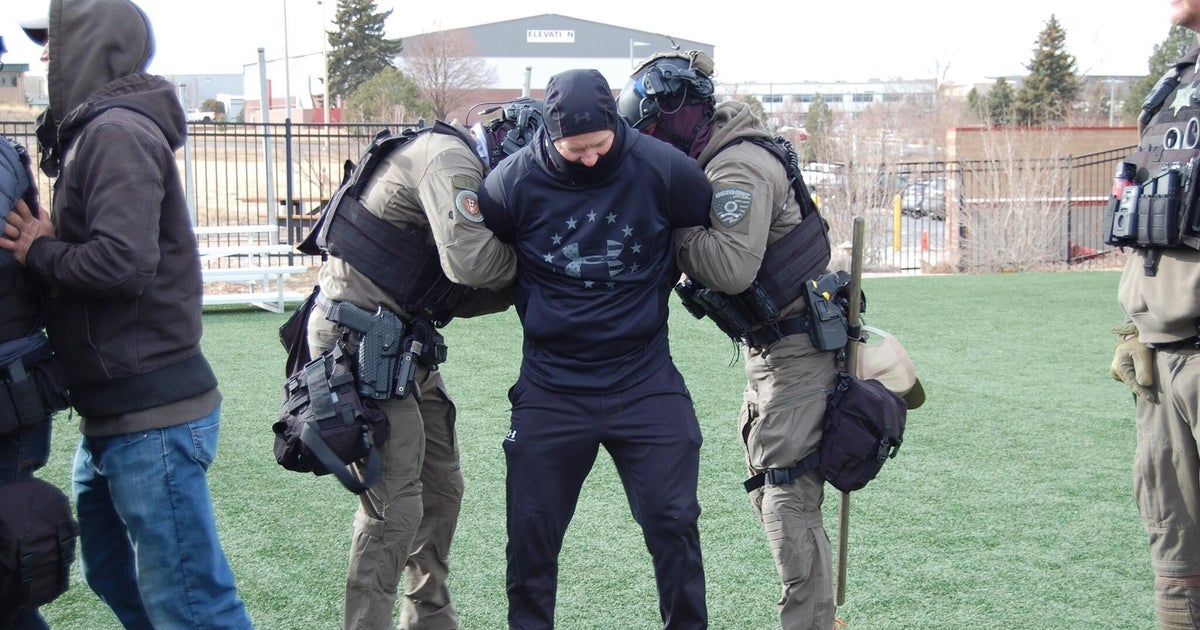In Your Dreams! Separating Nightmare Myths From Reality
PITTSBURGH (KDKA) -- Nightmares, we all have them occasionally, but why?
What causes them? Are there ways to stop them? Do spicy foods play a role? What about the temperature of the room you sleep in?
Turns out, there are a lot of different reasons for bad dreams. KDKA's David Highfield visited a local sleep lab to separate myth from reality when it comes to bad dreams.
Let's begin with why there are some nightmares we all seem to have in common.
Like the one where you're being chased and your legs feel like rubber, or the one where you're late for class and haven't studied for a test.
There's also the old I'm naked in front of everyone dream.
"There's some themes, and we're not sure why, but they do recur," said Dr. Daniel Shade, of the Allegheny Health Network Sleep Institute. "Mostly, they're fear based or an expectation you haven't quite met."
At the Allegheny Health Network's Sleep Institute, patients can stay over and have their sleep studied.
So what can trigger nightmares?
1.) Spicy Food
Can eating spicy food before bed really cause nightmares? The answer is, yes.
"A jalapeño pizza, something spicy, that's probably not good. It's going to interrupt your sleep in general," says Dr. Shade.
He says actually any type of food kicks up your metabolism, which can make your brain more active.
2.) Cold Room?
Does sleeping in a cold room cause nightmares? Dr. Shade says he's not sure if temperature really affects your dreams.
However, he adds, "A little bit cooler temperature tends to help a lot of people sleep better."
But he says a room that's too cold or too hot for that matter is never good for sleep.
3.) TV Shows?
What about seeing something on television that disturbs you? We all know that can cause a bad dream. So if you think something will bother you, what can do you?
Let's say clowns freak you out and snakes do, too.
Dr. Shade says practice thinking about those things differently.
"That's image rehearsal, and what you can do and one of the treatments for chronic nightmares is to picture whatever is happening that is bad and put it in a different light," says Dr. Shade, "and actually rearrange it the way that you want it to be in your brain."
He also says just telling yourself you will not have a bad dream can help.
4.) Alcohol?
What about alcohol, does that affect your dreams? Dr. Shade says yes, that after a few drinks, you'll dream less when you first go to bed.
But then, Dr. Shade adds, "People will start to have vivid dreams later on. That may disrupt sleep and may have even more nightmares."
He says having a fever can affect dreaming, as well as some medicine like blood pressure pills.
The doctor also says if you get to a point where you're sleep deprived, that could cause bad dreams.
He says exercise, going to bed at the same time, and not having a television, computer or cell phone in the bedroom will lead to better sleep.
Finally, is it true faces you see in dreams are ones you've seen in your awake life? He says not necessarily.
"One the goals of sleep is to strengthen some memories," Dr. Shade says.
Those are memories you'll need, like your address.
"And another goal of sleep is to get rid of connections that you no longer need," he adds.
Such as what color shirt I wore today.
"So a face you may have recognized, it may have been one you've seen, it's just tucked away somewhere or it may be nothing," Dr. Shade says.
For some people, nightmares can become a real problem.
They suffer from chronic nightmares and it makes them stressed and anxious far after the dream is over. For those people, going to a place like the Sleep Institute may really help.
Click here for more information on the Allegheny Health Network Sleep Institute.
RELATED LINKS:
More Health News
More Reports by David Highfield
Join The Conversation On The KDKA Facebook Page
Stay Up To Date, Follow KDKA On Twitter







